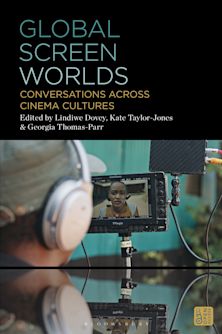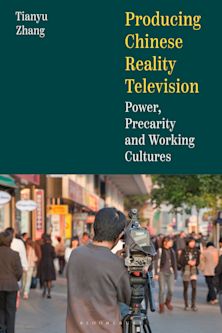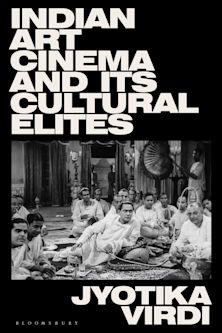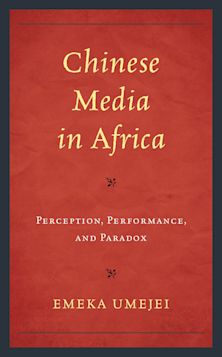- Home
- ACADEMIC
- Film & Media
- Asian Film and Media
- Transnational Communities in the Smartphone Age
Transnational Communities in the Smartphone Age
The Korean Community in the Nation’s Capital
Transnational Communities in the Smartphone Age
The Korean Community in the Nation’s Capital
This product is usually dispatched within 1 week
- Delivery and returns info
-
Free CA delivery on orders $40 or over
You must sign in to add this item to your wishlist. Please sign in or create an account
Description
Transnational Communities in the Smartphone Age: The Korean Community in the Nation’s Capital examines the durable ties immigrants maintain with the home country and focuses in particular on their transnational cultural activities. In light of changing technologies, especially information and communication technologies (ICTs), which enable a faster, easier, and greater social and cultural engagement with the home country, this book argues that middle-class immigrants, such as Korean immigrants in the Washington-Baltimore region, sustain more regular connections with the homeland through cultural, rather than economic or political, transnational activities. Though not as conspicuous and contentious as other forms of transnational participation, cultural transnational activities may prove to be more lasting and also serve as a backbone for maintaining longer-lasting connections and identities with the home country.
Table of Contents
1. Demographic and Socioeconomic Characteristics of Korean Immigrants in the Washington-Baltimore Area
2. Connecting with the Home Country: Information and Communication Technologies (ICT) and Transnational Media/Television
3. Transnational Activities of Korean Immigrants
4. Cultural Transnational Activities: The Consumption of Transnational Media
With Young A. Jung, and Gyu Tag Lee
5. Where is Home?: Identity and Belonging in the Digital Age
6. Compatibility of Assimilation with Ethnic Preservation and Transnationalism
Conclusion: Overview and Implications
Product details
| Published | Dec 20 2017 |
|---|---|
| Format | Hardback |
| Edition | 1st |
| Extent | 252 |
| ISBN | 9781498541756 |
| Imprint | Lexington Books |
| Illustrations | 1 map; 14 graphs |
| Dimensions | 237 x 159 mm |
| Series | Korean Communities across the World |
| Publisher | Bloomsbury Publishing |
About the contributors
Reviews
-
Politicians can talk all they want about strengthening borders and building walls. The fact remains that in today’s world culture transcends political and geographic boundaries. In this groundbreaking study, Dae Young Kim documents how Korean migrants and their children remain connected to their ancestral homeland while thriving in a new country. He argues that the technologies that allow Koreans to simultaneously consume cultural products and participate in social life on both sides of the Pacific have blurred the distinction between the ‘old country’ and the new and are changing the meaning of citizenship.
Philip Kasinitz, City University of New York
-
This book provides vivid pictures of Korean immigrants’ transnational lives in the Washington-Baltimore area, the third largest Korean community in the U.S. While most important previously published books covering a particular Korean community in the U.S. focused on Korean immigrants’ small business activities and/or their business-related intergroup conflicts, this book focuses on their transnational cultural and social activities. It is a great contribution not only to Korean American studies, but also to studies of immigrant transnationalism in general.
Pyong Gap Min, Queens College and the Graduate Center of the City University of New York
-
Transnational Communities in the Smartphone Age steps outside traditional gateway cities such as New York and Los Angeles to focus on the understudied Baltimore-Washington metropolitan area, home to the third largest Korean American community in the U.S. Kim shows us how current immigrant communities synchronize their old and new countries as well as the limits of this bifocality and the troubling side of transnationalism.
Miliann Kang, University of Massachusetts, Amherst



































